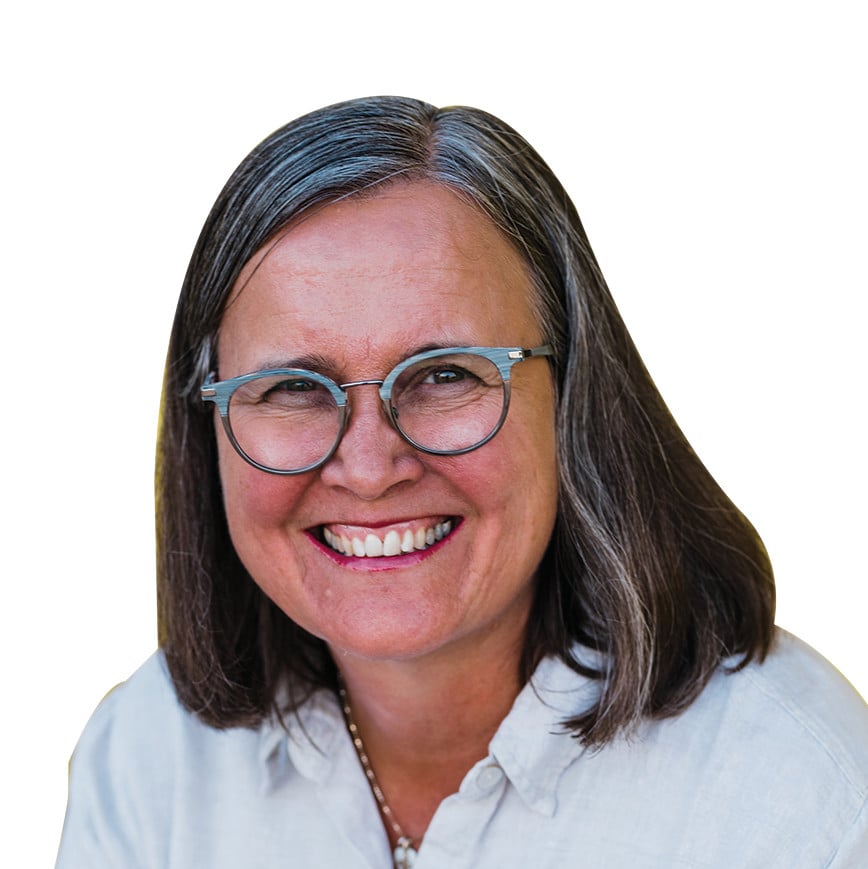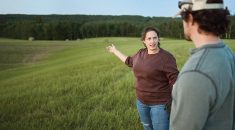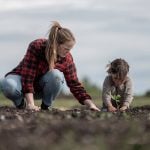As the calendar winds down 2021, and the snow comes, it strikes us that another season is approaching. Farming gives us many clear signs that things don’t stay the same.
This summer I met Nell Smith, age 80, the author of Retire to the Life You Love, practical tools for designing your meaningful future. It’s a Canadian book and very valuable. Don’t write off this article because you read “retire,” let’s focus on designing a meaningful future.
What do you really want in your next chapter of life? Many farmers tell me they never plan to retire, their plan is to work less, but they don’t have a clear job description past 66 as their roles on the farm shift.
Read Also

Maintain motion to ease joint stiffness
As we proceed into colder, drier temperatures, it’s common to hear reports of more joint stiffness and pain, athletic therapist Kathlyn Hossack writes.
Many farmers confess to me that they have not paid much attention to friendships, and during this long GREAT PAUSE, it’s been tough to have a robust social life.
My curiosity is, “What time do you spend thinking about being intentional to create a fun, purpose-driven life after letting go of the main management of the farm?”
I am living this. Perhaps we should call the next phase of aging THE GREAT SHIFT. It’s actually three phases of shift, 65 to 75, 75 to 85 and 85 to 95.
My spouse still leaves the house at 8 a.m. to find out what is in store for the farm tasks for the day, but he comes in for supper at 5:30 pretty tired. Management on our farm is collaborative with our successor son. The 64-year-old directs customers to talk to the next generation. Shifting management to the next generation is an ongoing process and each farm situation will be unique. The key is the attitudes of all generations to treat each other with respect, share decision-making and ask for input.
Smith encourages us to use her six-circle framework to map out a great life:
1. Be who you are.
2. Be well physically and mentally.
3. Be a contributor to your family and community with your skills; learn new skills.
4. Just be for emotional and spiritual well-being. (What brings you joy?)
5. Be curious to keep on stretching to have great cognitive health.
6. Be compassionate. (What are you doing to nurture relationships?)
1. Who are you in your coveralls? Are you the president of the company who won’t let go of control? Are you the compassionate mentor who is fine with the successor taking over more of the operational decision-making? Are you treated with respect and appreciation as the wise elder? Do you hurt when your opinions are not considered or respected? Is your identity struggle tied up in the fact that you cannot call yourself a farmer anymore unless you remain active on the farm? Someone said we are human beings not human doings. Our worth and identity are not cemented with what we do with our roles on our farm.
Values are a key component of who we are. I challenge you to get my Values cloud ([email protected]) and figure out your top five values. If you want to do this more scientifically ask for the online Values indicator. Happy people as they age are those whose values are aligned. Mine are relationships, independence, intimacy, challenge, and spirituality. I am happy creating a robust coaching practice to help farm families find harmony through understanding. My personal style is to be influential. What is your personal style? I have an online tool for that also. You get energy when your personal style lines up with your life choices, so as an extroverted influencer I need lots of people connection in my week.
2. Being well physically and mentally has come to the forefront in 2021. Ralph Waldo Emerson said, “Your health is your wealth.” Our doctor pointed his finger at us when we were 60 saying, “Look you two, it is time to have some fun, you only have 15 good years left!!” He spoke from his lived experience as a rural physician. My goal is to continue to live healthy past 90. What are you doing to sleep well, eat nourishing food, decrease sugar and alcohol intake? Are you taking good care of your brain? Do you seek out medical checkups to catch things early? Prevention is the best medicine. Walking 40 minutes a day could be game changing for us all.
Who is a great role model for you for aging well? What do you need to start doing to be healthier?
3. Contribute: to your family and community. We have an amazing resettlement committee in our town that helps newcomers to Canada settle well. My husband loves spending lots of time with the grandkids, as do I. We have seen the folks who serve thrive in the act of helping others. As you shift and age, perhaps there are families in your farm radius who would love to adopt you as a grandfather! Think about the myriad of skills you have from 40 years of farming: critical thinking, numbers, money, people, repairing, strategizing. Many folks need your input! Take a sheet with a horizontal row that says I LOVE … and fill in five tabs of things you love in noun form, e.g. travel, grandkids. Then go down the sheet (left vertical column) with the heading I am good at: organizing… fill in the row under each tab, planning, designing, nurturing, computer research… etc. You’ll get an amazing grid of ideas. A man in our community has taken his welding skills to create amazing art with found metals from farms. He appreciated the old auger flighting we gave him from our bush for his art.
4. Just be. Smith outlines ways of being: be still, be silent, be in nature, be joyful, play, be creative.
What in your present life gives you that keen feeling of pleasure and aliveness?
Read Reb Zalman’s book: From Age-ing to Sage-ing.
5. Be curious. Keep learning and discovering. Keep your brain firing on all cylinders. Check out University of the Third Age www.U3A.org.uk.
6. Be compassionate, to yourself, family and friends and society.
“How much we know and understand ourselves is critically important, but there is something that is even more essential to living a wholehearted life: loving ourselves,” says Brene Brown, author of The Gifts of Imperfection. Brown’s podcast, Unlocking Us, encourages me often. As a lifelong learner I am soaking in new insights when I listen to the ways we need to care for ourselves. Many women in agriculture will agree with Smith, “If we don’t care for ourselves first, we will be the ones needing care next.” Tracy Brunet’s Impact Farming podcast guest Darci Lang, “Taking Care in Tough Times,” is worth a listen. Also read The 5 Love Languages, by Dr. Gary Chapman. I feel loved with words of affirmation and meaningful touch, while my spouse wants “acts of service” to feel deeply connected. Ask me for the ROLE MAP to be intentional about your six key roles: self, couple, family, farm, friends, community. It’s a fun worksheet to start the conversation of what you really want your life to look like.
Cherish one another in your marriage. Don’t assume that your spouse wants to spend the next 25 years with you if you have put your marriage on “coast” while you’ve been chasing cows.
You need to order Smith’s book today in time for Christmas!
Peace and joy to your family.
















